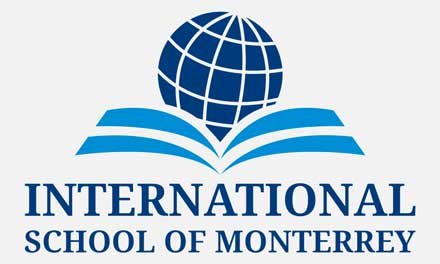
SCHOOL OVERVIEW
The educational model followed in ISOM is largely grounded on the principles of Social Learning and Social Constructivism, whose main proponents are Albert Bandura and Lev Vygotsky, respectively.
We foster meaningful learning through well-oriented human interaction. Most of our activities inside and outside the classroom are based on collaboration. Students practice the English language as they develop communication, negotiation and relationship skills that can be transferred to other areas and environments in their lives.
Students are at the center of every decision and every learning endeavor within our educational context. They are entrusted to engage responsibly in activities that consider their diverse cultural backgrounds and promote an open and respectful exchange of ideas to bring about positive transformative actions in their groups and environment. The first place students are encouraged to affect positively is, precisely, their school. As they take ownership of our institution, students work through the school year and alter the way it is presented to the world by displaying their work and achievements throughout the facilities.
A variety of assessment instruments is employed during the school year in order to identify each student’s personal level on every subject they course. This allows us to implement a differentiated learning approach, tailoring every lesson plan, activity, project, to the individual needs and interests of our students. We have also set in place different support and reinforcement programs for students who need more one-on-one time with a tutor in order to access higher-order learning in disciplines such as Early Literacy, English, Spanish and Math.
One of the main concerns embedded throughout the curriculum is student self-awareness from a global standpoint. Our programs allow students and teachers to explore and assess different values and ideas through the lens of charitable examination of other cultures from near and far. We also prioritize the inclusion of fine arts within the standard curriculum in all stages of child development. As a natural form of self-expression, both music and plastic arts allow students to communicate their understanding of the world through a constant search and appreciation for beauty. All students participate in diverse performing arts events and art exhibitions that relate to different subjects. They visit museums, parks and theaters every year. Moreover, ISOM offers extra-curricular training in artistic disciplines such as dance, choir and violin.
Through our media literacy program, students mold a sense of digital citizenship. Devices and applications are regularly used in the classroom to boost student learning. Students participate in online programs and platforms that relate to different classes, particularly Reading and Math. They also learn to create their own media to be used constructively for communication purposes. If they choose to do so, students can also join our afternoon robotics program and take part in regional workshops and competitions.
Students are likewise versed in taking responsibility for their health and bodies. From preschool neuro-motor awareness and practice courses through middle school fitness and sports programs, ISOM students strengthen their core muscles and remain active. They compete in different internal and external events, and may join the school soccer and basketball league in the afternoons. Our nutrition program aims to teach children to make healthy eating choices every day by offering a large assortment of wholesome foods.
At ISOM, we believe that a child’s formative years are of paramount importance, not only in the acquisition of knowledge, but also in the development of personal and technical skills that will afford our students the most personal success and availability of opportunities in the future. We believe that this is attainable through a sense of personal social responsibility, to be kind, generous and ready to act in favor of those who need us. All students and academic personnel participate with local institutions to empower our service education pursuits. Our wide- range values program influences our internal interactions and conduct management. Disciplinary issues are dealt with discretion and justice. However, there is a much greater emphasis on the prevention of these issues. This is handled through the clear communication of class and school rules and expectations, and focused acknowledgement, recognition, counseling and motivational support.
The outcome of all the above mentioned efforts translates into forming integral and purpose-driven leaders who are committed to learning with the intent of making a positive impact in their groups and environments.
